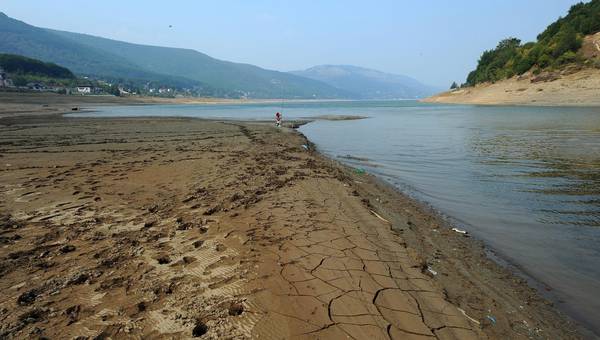The East is warming faster, in Ljubljana record increase
According to the Crowther Lab's study on climate change
25 July, 10:39The future will be challenging because the climate will be much warmer than it is today, in some cases even torrid, transforming several cities in the region into the equivalent of places like San Antonio, Dallas or Canberra, in an area that will suffer a lot from the effects of global warming. This is what emerges from a study published recently in the scientific journal 'Plos One', "Understanding climate change from a global analysis of city analogs", conducted by researchers at the "Crowther Lab" of the Federal Institute of Technology in Zurich (Eth). The results are worrisome for those living in eastern Europe.
Ljubljana is the city that, according to the study, will record the largest and fastest annual average temperature increase worldwide. Somebody assume there will be an increase of 3.5 degrees Celsius in the average annual temperature by 2050, with even bigger increases in the average in the hottest month, 8 degrees. The Slovenian capital was closely followed by Belgrade (+7.9 in summer), with both cities also recording significant increases, almost 6 degrees, in the average temperatures of the coldest months. The climate in Ljubljana will thus resemble, in thirty years, that of Virginia Beach. And the forecast is realistic and coincides with that of the Slovenian Environment Agency, climatologist Aljoša Slameršak, cited by the local media, confirmed. Belgrade, on the other hand, will face temperatures usually recorded in San Antonio, Texas. The two capital cities are not alone. The study found that as many as "77% of future cities" in the sample examined, consisting of 520 major cities around the world, in 2050 will have a climate which is typical today of "other bioclimatic regions", often close to the Tropics. But the 'shock' will be stronger in Eastern Europe. In the ranking of the cities where the temperatures will be higher and higher (in terms of the average annual temperature increase but above all the summer ones), in the third-place you can find another Serbian city, Novi Sad (+2.9 degrees more on average, + 7.9 warmer month), which is estimated to have a climate similar to that of Dallas in three decades. Immediately after, in fourth place, comes Budapest (+3 on average /+ 7.8 warmer months), which by 2050 will face climate conditions similar to those experienced today in Skopje (North Macedonia) during the hot summer. Even Vienna (+ 2.3/+ 7.6), will follow in the footsteps of the Macedonian capital, whereas Bratislava (+ 2.6/+ 7.5) will reach temperatures like those recorded today in Canberra, Australia. And then Banja Luka (+ 2.7/+ 7.4) is in ninth place, along with Dallas, Zagreb (+ 2.3 /+ 7.3), which is as warm as Louisville (Kentucky). Then comes Podgorica (+ 3.1/+ 7), which will be like Jacksonville, Florida, whereas Skopje (+ 2.4/+ 6.9) will "copy" the climate of Austin (Texas). The Romanian capital Bucharest (+ 2.9/+ 6.9) will become the equivalent of today's Almaty (Kazakhstan), and the climate in Prague and Warsaw will be at the same level as Tbilisi, in thirty years. This scenario was also confirmed by other studies, such as the one published last year by the Regional Cooperation Council, which predicted for the Balkans "an alarming increase in temperatures" of 1.2 degrees, "very shortly". But the thermometer could record an increase of 5 degrees by the end of this century, with a very heavy impact on "agriculture, forests, water resources, and human health".(ANSA).














